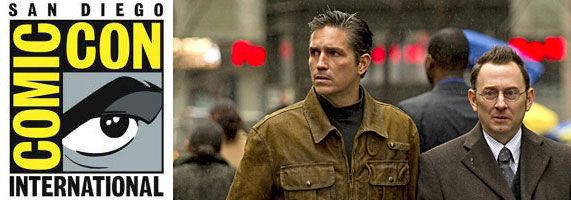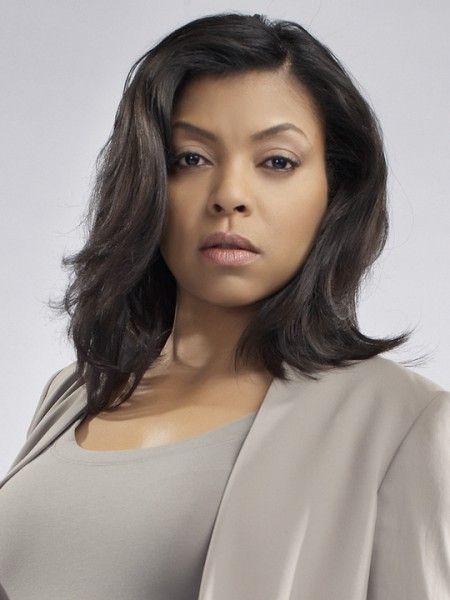Person of Interest is one of the biggest hits to premiere last year. The show centers the partnership between John Reese (Jim Caviezel), an ex-CIA operative, and the mysterious, millionaire computer engineer Harold Finch (Michael Emerson) who develops a machine that can predict crimes. After a cliffhanger season finale, the second season will premiere September 27th on CBS. We sat down with series creator/producer/writer Jonathan Nolan, series writer Greg Plageman and cast members Caviezel, Emerson, Taraji P. Henson, and Kevin Chapman to discuss where the new season picks up, the challenges of working on TV, and living in a society where all your information is public. Hit the jump for highlights from the interviews and our full interview with Jonathan Nolan.
While everyone was pretty tight lipped about what’s to come next season, we did learn that the second season will pick up right where the first left off. Nolan said:
“One of the things with our show is posing a lot of questions, but getting a lot of answers too.”
Plageman agreed:
“We hate it when we watch a show that has a serialized content, there’s a cliffhanger where somebody is placed in jeopardy, and then you come back the next episode and it’s like nothing happened. We don’t want to do that.”
It doesn’t seem like Reese will be swooping in to save Finch from his kidnapper anytime soon. Emerson revealed that:
“We're out of our rhythm and out of our comfort zone, because Finch is now being held hostage by a crazy woman, and that’s something were going to have to live through for a while”.
Plageman confirmed:
“It’s going to be very, very difficult for Reese to get Harold Finch back.”
Both Henson and Chapman agreed that Finch’s kidnapping was the most surprising moment of last season. Emerson also indicated that the second season would focus more on the origins of the machine, saying that they will be:
“Dipping into the back stories of everyone and more focus on the gradual way the machine was made; the detailing of it, nuances that went into it, the wide ranging capabilities of the machine of which have only seen the tip of the iceberg.”
Despite the fact that officers Carter and Fusco learned they were both working for Reese at the end of last season, don’t expect much of a break in the tension between them. When asked if it would be easier for them to get along knowing that they were on the same team, Henson replied:
“I think in the beginning, but I see where they’re going right now just off the first episode back, they’re building still some more tension, just from a different angle.”
Chapman revealed:
“At some point Fusco is going to have to answer for his past.” And said the important question is, “Is he a good guy doing bad things, or a bad guy doing good things?”
On their favorite scenes to shoot, Caviezel joked:
“I don’t remember any of them”, but did say he loves the physicality of the action sequences, “I did five years of martial arts; I played seventeen years of basketball.”
Emerson said:
“I liked the scenes with the baby, but the baby steals all the scenes that you’re in. So that would get old after a while, because the baby is too perfect. I liked being high on ecstasy.”
Henson discussed the challenge of transitioning from film to TV, saying:
“It was a little scary at first, because I come from the world of feature films. I’m used to getting scripts where I know where my characters going; you know the beginning the middle and the end. With this show, you never know where your characters going to end up, you don’t know what the backstory’s going to be. There’s still so much I don’t know about Carter…I may get episode 205 and I may have been born a man.”
Chapman agreed that it can be difficult, but “It’s fun to take the journey with your character.”
Check out the full interview with Jonathan Nolan below.
You guys have a very interesting show that touches on the balance between private and very public information, where do you see your show pushing the envelope for a paranoid society, because we live in a society where everybody’s information all the time is on Facebook or twitter. Do you think people are going to start second guessing their own public announcements?
JONATHAN NOLAN: Well I sure hope so. As with a lot of technological advances, a lot of these things have come online quicker than culture and legislators can respond to them. I’ll give you an example. It’s in the public interest for people to be able to know who owns a particular piece of property; right? So publicizing ownership, it’s great. But in California for instance, if you buy a house, pretty much anyone can find out where you live online. Those two things kind of work at odds with each other. If you extend that to things like twitter and Facebook, the young generation of people growing up - I think one of the more interesting things I heard last year was someone saying it’s not that younger kids these days don’t value privacy, or don’t understand why it would be a good thing, they just don’t have a choice if they want to socialize. The way that high school works these days, if you’re not Facebook, you don’t exist, if you’re not on twitter, you don’t exist. So they don’t have a choice but to give up some of these things.
I think it’s important for people to know behind all of this is private corporations. Our show is a little more about government surveillance. But the reality is, by far the most widespread surveillance being kept right now is by private companies. Google knows far more about you than the FBI. Facebook knows far, far more about you than any domestic spying program. We do kind of feel like there’s a relevance to some of the issues in the show which aren’t front and center all the time. Our joke is our show is the first one that starts as science fiction but ends as a documentary.
Can you talk a little bit about how the next seasons going to start and where it’s going to pick up?
NOLAN: I can’t because Jim hasn’t told us yet, we keep asking. No, it’s going to pick up right where we left off. We had a bit of a cliff hanger for our first season. One of the things with our show is posing a lot of questions, but getting a lot of answers too. So one of the shifts in our show, I think we are always endeavoring to tell the story of the week. We are also trying to evolve the relationships between our characters and also the relationship between our characters and sort of the fifth character of the show, which is the machine.
So how paranoid are you, actually?
NOLAN: [laughs]
Do you think this is entirely fiction? Do you think there might be a secret company out there keeping an eye on people?
NOLAN: I think there’s a not so secret company. At the risk of sounding like I’m wearing a tin foil hat. I think Facebook and Google are very clearly – it’s in the user license agreement that you sign every time you log in to your Gmail account, to your Facebook account, they are trying to know everything about you; your secrets, your not so secrets, the whole thing. They want to read your mind because they want to sell you shit. And that’s fine, that’s what companies have done for years, marketing companies have done that for years, but never on this scale and never this widespread. And I don’t know who those folks are responsible to. Google’s mantra is “Don’t be evil.” But, the fact that they even have to have that mantra suggest that there is a power there that people do not yet recognize. In short, yes, paranoid, very paranoid. One of the reasons Greg Plageman get along so well and have such a great partnership on the show is when I first sat down with Greg, I Googled him afterwards and I couldn’t find any pictures of him, he told me it was because he doesn’t like having his picture taken. We’ve kind of ruined that, but we are both of the same mind about it.
Person of Interest is a high concept show, why do you think it has succeeded where Awake and other high concept shows have failed?
NOLAN: Awake is a really, really nicely made show. I don’t think anyone really understands why a show works or why it doesn’t. A lot of it has to do with timing, a lot of it has to do with the network you’re on, the marketing team; there are so many intangibles that I think that kind of only an idiot would speculate on why one show worked and the other one didn’t with any expectation of getting any concrete answer out of it. I don’t know why any other shows didn’t work, because there are a lot of really great ones that didn’t. I think our show connected for a couple different reasons. I think other people feel the same way about some of these technologies that have come along. Just kind of an unspoken paranoia and interest in where this is all going, which is kind of what this show is about. And we have the best cast on TV.
Be sure to keep up with all of our continuing Comic-Con coverage here.


